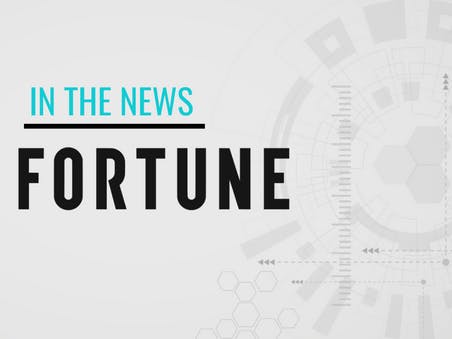Disinformation attacks are spreading. Here are 4 keys to protecting your company

Fortune: Lisa Kaplan
It will be months before we fully grasp the significance of two key events—the impact of disinformation leading to a violent insurrection culminating in an assault on the U.S. Capitol on Jan. 6, and the impact of the recent digital attack that breached SolarWinds Orion, a network-monitoring software widely used by U.S. government agencies and private-sector organizations.
Those two events each spotlight the same dire problem: The networks that pushed disinformation about the pandemic and the election have demonstrated that the information they weaponize to reach users is not only effective, but deadly. Those same disinformation strategies have been turned against major brands and industries ranging from pharmaceutical companies to online retailers.
With confirmation that Russian hackers were behind the SolarWinds attack and that they gained unprecedented access to at least 425 of the Fortune 500, including the top 10 telecommunications companies, there will be seemingly endless stolen data that can either be made public or used to micro-target segments of the population with disinformation. While we may not have all the details, we do know that our adversaries are well-versed in how to steal our information to use it against us. And given speculation around the size and scope of the breach, they will likely have an arsenal of information to distort and deploy against us.
This wasn’t the first time and won’t be the last that foreign-backed and criminal disinformation operations have targeted Americans. But while much of our national-level discussion has centered on the risk to elections, we must look at the disinformation ramifications of this national security incident through a broader lens. In 2021 and well into the future, major brands, especially those strongly associated with western democracies, will increasingly be a key target of disinformation campaigns, with the goal of destabilizing a company or our larger economy.
Just one false claim alleging a company breach, or a conspiracy theory targeting a company’s practices—such as a single allegation that an employee was involved in the violent insurrection—can set off a chain reaction, making shareholders anxious and customers tense, and putting the brand’s reputation and bottom line in jeopardy.
Organizations can no longer sit back and hope for the best.
Having combated disinformation campaigns in both the public and private sector, I can tell you firsthand that the impacts of online disinformation—both short- and long-term—can be catastrophic. When left unaddressed, online disinformation creates offline impacts affecting reputations, employee safety, and financial bottom lines.
To understand the gravity of this threat, just look to Wayfair, the U.S.-based furniture and home decor e-commerce company, which was recently the target of a viral conspiracy theory. Back in July, an anonymous QAnon conspiracy theorist falsely claimed that the company operated a vast child-trafficking operation in which it shipped and sold children in its industrial cabinets. As a result, the company took a reputational hit, QAnon followers attempted to short the stock, and Wayfair CEO Niraj Shah was personally targeted.
Read the full story here.